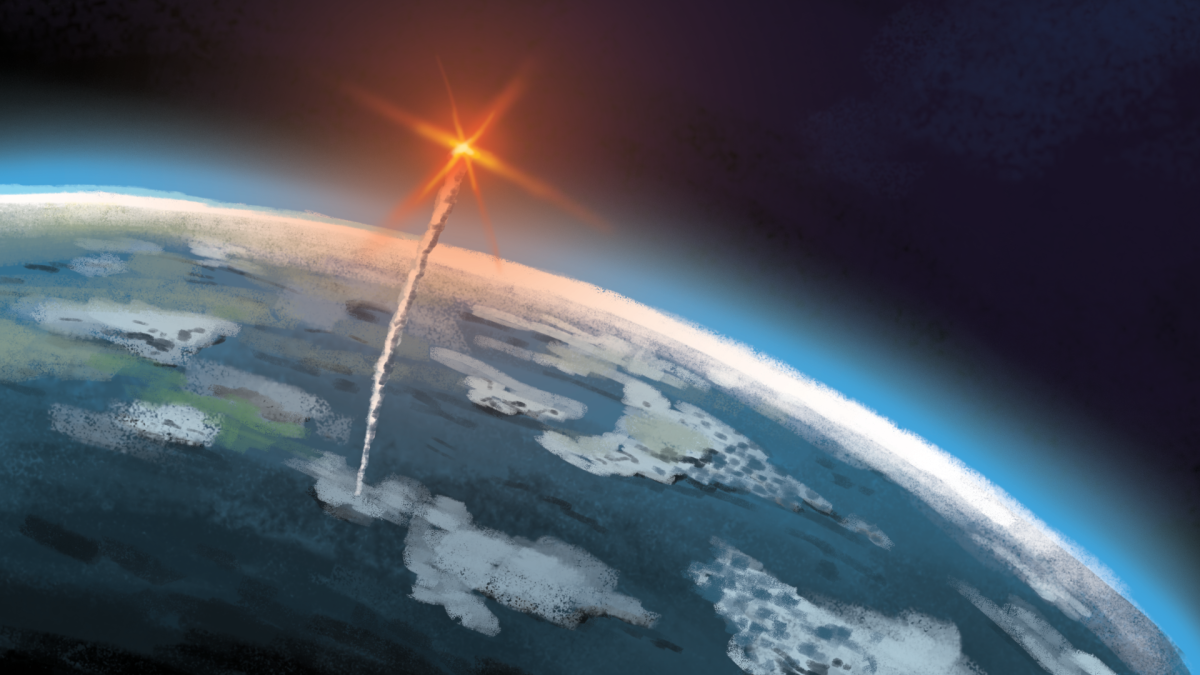At the end of the Cretaceous Period, an asteroid caused one of the most dramatic mass extinctions Earth has ever seen. The dinosaurs went extinct, in addition to roughly 75% of animals on our planet. In an instant, a solar storm or asteroid could take down our entire civilization. We all know the story, so do we actually believe this can’t happen again?
Yes, it’s unlikely — but it’s certainly not impossible.
For the sake of the human species, we need to take measures to journey through the galaxy and eventually settle our solar system.
Brand Fortner, astrophysicist and physics research professor at NC State, said space exploration is necessary for the long-term survival of the human species.
“All our lives are balanced between long-term and short-term,” Fortner said. “There are some benefits today, but most of them will show up hundreds, thousands of years from now. We need to protect and support our lives here on the planet, but we need to plan for a spacefaring future.”
Although existential threats such as asteroid impacts are very unlikely, they are extremely high-impact, meaning they have the power to destroy the entire human species. It would be irresponsible not to prepare future generations for these events.
In fact, near-miss asteroids are relatively common. A two-kilometer asteroid named 1997 XV11 — predicted to approach Earth on Oct. 26, 2028 — was identified as a potential threat but later determined it will just miss our planet.
“One way or another, the cosmos will get us,” Fortner said. “The cosmos is a dangerous place, and the only way that we can survive as a species is that eventually we become spacefarers.”
An investment now will also benefit us in the long-term economically, whether that be from space tourism or resource extraction.
Recent figures indicate that space tourism globally could generate $4 billion in revenue each year. The transition from developmental to commercial enterprises is one reason for this economic impact. For example, Virgin Galactic, a British-American spaceflight company founded in 2004, began taking reservations for commercial flights, with each ticket costing more than $200,000.
Moreover, the costs of space exploration will be dramatically reduced if we use resources already in space. For example, establishing a launch pad on the moon would make space travel significantly more efficient because it takes up to 30 times less energy to launch from the moon than from Earth. Although it would cost several billions dollars to create a base on the moon, its long-term benefits are undeniable.
The Earth also has a finite supply of resources, and at some point we will need to seek out alternative sources of energy.
Take fossil fuels as one example. We frequently hear this term in our classes or on the news because of the high rate in which we are exhausting them. Oil reserves, for example, are estimated to run out in less than 50 years.
One solution to this lies outside the bounds of our planet: the moon, other planets and asteroids are rich in minerals, gasses, water, metals and nonmetals. These are resources crucial to energy production and the sustainment of human life.
Another reason for the investment in space exploration is that, as potentially the only form of intelligent life in the galaxy, the human race has an obligation to survive and understand our universe.
How can we be inactive when we know there is the possibility our species will be wiped out entirely, whether that be in a thousand years or billions of years from now?
Fortunately, space exploration has picked up steam in recent years. NC State graduate Christina Koch will make history in 2025 during NASA’s Artemis II mission as the first woman to travel to the moon.
The United States government, international organizations and private companies must continue to invest in spacefaring, but as students we can also take action.
Although donating to organizations such as The Planetary Society benefits space exploration, making a positive difference does not have to take the form of a monetary investment. Staying educated and advocating for the cause are also important steps that we should take.
NC State offers several courses on the subject, including stellar astronomy, and hosts space-themed events throughout the year. The North Carolina Space Symposium, which takes place on NC State’s campus annually, brings representatives from NASA and other professionals together to raise awareness and share research.
There are enormous challenges to space travel, including health risks and immediate expenses, but if we want the human race to survive in the long run we must invest in space exploration today.
“Space is hard, but we have no choice,” Fortner said.














